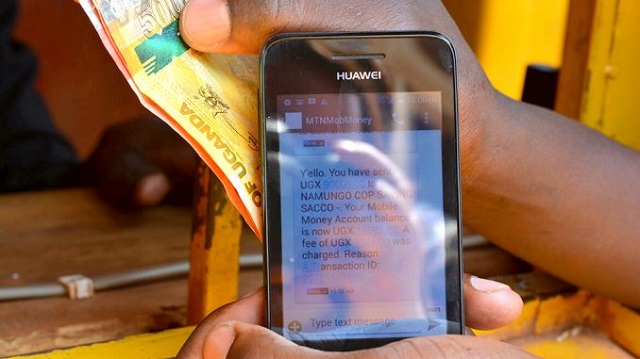
Kampala, Uganda | THE INDEPENDENT | The financial sector recorded a big jump in electronic transactions over the last year boosted by the lockdown that was induced by the COVID-19 pandemic, according to sector players.
The economy was largely shutdown in March with the government banning most activities like public transport, tourism, entertainment among others. But even the open spaces like agriculture and construction were affected due to restrictions on movement.
To support measures like social distancing, the sector introduced measures to enable the public easily transact without walking to banking halls or shops where necessary by waiving charges on electronic transfers. Limits on amounts transferable by mobile money platforms were also lifted.
According to records at the Bank of Uganda, while the economy suffered the effects of the lockdown, the volumes of money being moved electronically were increasing giving the financial sector an impetus towards the promotion of a cashless economy which they now see as more possible.
Mobile money transactions grew by 19.3 percent to almost 80 trillion Shillings and of this, 41 trillion was recorded between January and June, half of the year during which the country went into lockdown. The Escrow account balances or money belonging to the mobile money customers whether saved or not yet withdrawn grew by 51 percent while the value of debit and credit card transactions also rose by 20 percent.
But it was electronic banking that grew fastest with the value of mobile banking transactions growing at 157 percent while internet banking grew by 53 percent. This was revealed as the sector leaders started a retreat on the theme: Frameworks for accelerating the growth and development of payment ecosystems in Uganda, organized by the Uganda Bankers’ Association.
Bank of Uganda Deputy Governor Michael Atingi-Ego says as new policies that support a cashless economy come up, it is prudent that all Ugandans adapt to new technologies though the old and new payment systems will be allowed to work side by side.
The Central Bank also responded to calls for measures towards the harmonization of payment system which could lead to uniformity in the cost of electronic transactions and in turn lead to lower costs for the consumers.
Mackay Aomu, the director National Payments Department says the newly enacted National Payments Systems Act should ensure that the country has a national switch system where bank customers will have the freedom to transact at any outlet irrespective of their bank.
All these measures and developments are rendering the traditional banking hall more irrelevant. Commercial banks have of recent been closing off branches with a view of cutting costs by taking advantage of digitalization.
Uganda Bankers Association chairman Mathias Katamba says innovations like agency banking are beneficiaries of digitalization and these are helping banks to share infrastructure and cut costs.
******
URN
 The Independent Uganda: You get the Truth we Pay the Price
The Independent Uganda: You get the Truth we Pay the Price





